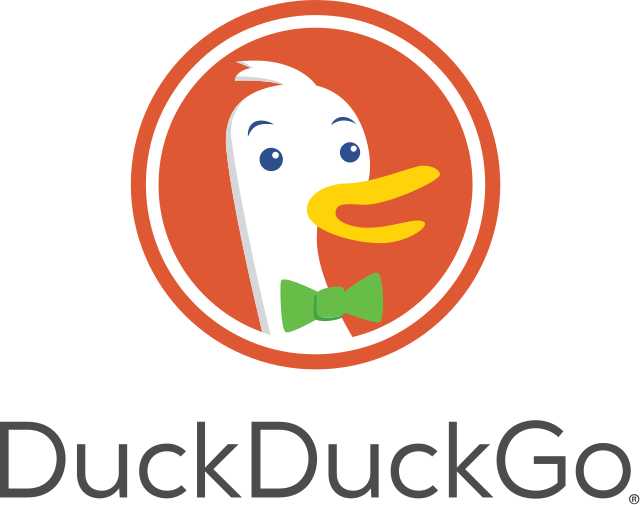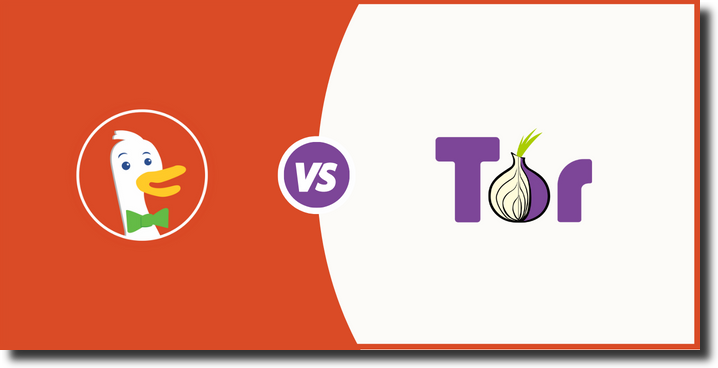
DuckDuckGo is a search engine that launched in 2008 with the mission of protecting users’ privacy. It does not collect or share any personal information about its users.
So, if you’re looking for an alternative to Google that values your privacy, DuckDuckGo might be a good option for you.
But how does it stack up against Google in terms of search results? In this blog post, we’ll take a look at DuckDuckGo and see if it’s a viable Google alternative.
Table of contents
What is DuckDuckGo?
DuckDuckGo is a search engine that emphasizes privacy and does not collect user data. It was founded in 2008 by Gabriel Weinberg.
This engine does not show personalized results or ads based on user data. The search engine generates revenue through advertising and affiliate marketing.
It has a few unique features that set it apart from other search engines. One is !bang, which allows you to search a specific site for the term you’re looking for. For example, if you wanted to search for “duck” on Wikipedia, you would type “!w duck” into the DuckDuckGo search bar.
Another DuckDuckGo feature is zero-click info, which gives you information about your query without having to click on a result. This is similar to how Google shows information in Knowledge Graphs.
One of the main reasons people use DuckDuckGo is its privacy features. The search engine does not collect any user data, so your searches are completely anonymous. Unlike Google, DuckDuckGo does not show personalized results or ads based on your data.
This makes DuckDuckGo a good choice for people who are concerned about their privacy online.
If you’re looking for an alternative to Google that emphasizes privacy, DuckDuckGo is a good option. The search engine has some unique features and does not collect any user data.
What are the benefits of using DuckDuckGo?
There are many benefits of using DuckDuckGo as your primary search engine. Perhaps the most important benefit is that DuckDuckGo does not track your search history as Google does. This means that your searches are completely private and cannot be used to target ads at you.
In addition, DuckDuckGo features a number of innovative features that make it a more powerful search engine than Google.
For example, DuckDuckGo has a “bang” feature that allows you to instantly search a specific site (e.g. !amazon for Amazon.com). This can be extremely useful when you’re trying to find something specific on the web.
Overall, DuckDuckGo is a great alternative to Google for anyone who values privacy and wants a more powerful search engine.
Does DuckDuckGo protect your privacy better than Google?
 When it comes to search engines, there are really only two options: Google and everyone else. But if you’re concerned about privacy, you might be wondering if there’s a better option out there for you. That’s where DuckDuckGo comes in.
When it comes to search engines, there are really only two options: Google and everyone else. But if you’re concerned about privacy, you might be wondering if there’s a better option out there for you. That’s where DuckDuckGo comes in.
DuckDuckGo is a search engine that prides itself on protecting your privacy. They don’t collect any personal information about their users, which means they can’t sell your data to advertisers. They also don’t track your searches or serve you personalized ads.
So does that mean DuckDuckGo is better for your privacy than Google?
Well, it depends. If you’re just looking for a search engine that doesn’t track your searches, then yes, DuckDuckGo is a good option.
But if you want a search engine that doesn’t collect any personal information at all, then you might want to consider startpage.com instead.
What are the drawbacks of using DuckDuckGo?
There are a few drawbacks to using DuckDuckGo as your primary search engine.
Firstly, DuckDuckGo doesn’t have the same robust search results as Google. This is because it doesn’t index as much web content as Google does. As a result, you may not find what you’re looking for as easily on DuckDuckGo.
Another drawback of DuckDuckGo is that it doesn’t personalize your search results the way Google does. This means that you won’t see results tailored to your specific interests and location.
Lastly, DuckDuckGo uses fewer cookies than Google does. This means that it can’t track your search history and show you targeted ads based on your past searches. For some people, this is a good thing.
But for others who like the convenience of personalized ads, it’s a downside to using DuckDuckGo.
Should you switch to DuckDuckGo from Google?
There are many reasons why you might want to switch from Google to DuckDuckGo.
For one, DuckDuckGo does not track your search history as Google does. This means that your search results are not personalized based on your past searches, and you’re less likely to see ads for things you’ve already looked at.
Another reason to switch is that DuckDuckGo doesn’t filter your results the way Google does. Google’s filter bubble can sometimes result in you only seeing results that agree with your worldview, which can limit your ability to learn new things or explore different points of view. DuckDuckGo, on the other hand, shows you a more diverse range of results.
Finally, DuckDuckGo is committed to protecting your privacy. They don’t collect any personal information about you, so you can be sure that your searches are completely confidential.
So if you’re looking for a more private and unbiased search engine, DuckDuckGo is a great option.
DuckDuckGo vs. Tor
 Much more subtle differences exist between DuckDuckGo and Tor than between DuckDuckGo and Google. This is due to the fact that Tor is a browser that prioritizes protecting your online anonymity.
Much more subtle differences exist between DuckDuckGo and Tor than between DuckDuckGo and Google. This is due to the fact that Tor is a browser that prioritizes protecting your online anonymity.
From this angle, Tor and DuckDuckGo are fairly comparable. Additionally, the Tor browser uses DuckDuckGo as its default search engine.
However, when comparing the two, one significant distinction stands out. DuckDuckGo is merely a search engine, with all the benefits and drawbacks that come with such a tool. Tor, which stands for The Onion Router, is a comprehensive network and browser in contrast.
This immediately relates to the second significant distinction. When utilizing Tor, your traffic is encrypted and your true IP address is concealed. DuckDuckGo, in contrast, doesn’t conceal
Does DuckDuckGo Hide Your IP Address?
There is a reason why major web browsers like Google Chrome, Bing, and Firefox are so well-liked. The primary one is that they are simple to use. They are well known for monitoring everything you do online, though.
Even in private mode, while using Google or Bing to search the web, the keywords you enter are sent to the website you are visiting in the HTTP reader. Your device automatically shares your information, including your IP address, when you visit the website. It is possible to identify yourself using this information. Search leakage is what DuckDuckGo refers to as.
How well does DuckDuckGo perform in this area and does it conceal your IP? Like any other search engine, it says it does but in the end not so much. Your real IP address is exposed the minute you access the content you’ve searched for.
DuckDuckGo with VPN
The way that DuckDuckGo and a VPN service secure your privacy is the main distinction between them. When a VPN protects your entire device and offers comprehensive online privacy, DuckDuckGo only offers privacy while you’re using it. Your complete device is not protected by the search engine.
DuckDuckGo with VPN offers even more protection for your online privacy. A VPN encrypts your internet connection and routes your traffic through an intermediary server, making it impossible for anyone to spy on your online activity.
Whether you’re concerned about online privacy or just want a more secure way to browse the web, DuckDuckGo with VPN is a great choice.
Best VPN for Search Engines
HideIPVPN offers a VPN service with military-grade encryption, and high-speed servers with unlimited bandwidth.
Our service comes with shared IP addresses so that your activity can never be tied to one particular user, further protecting your privacy.

We also offer DNS leak protection, a Kill Switch, the latest VPN protocols, and a guaranteed no-log policy.
Best VPN Deal! Get HideIPVPN for $2.7/mo!
Every purchase you make comes with a 30-day money-back guarantee.
Conclusion
DuckDuckGo is a search engine that values your privacy. It doesn’t track your searches or collect your personal information. DuckDuckGo is a great alternative to Google if you’re concerned about your privacy.



